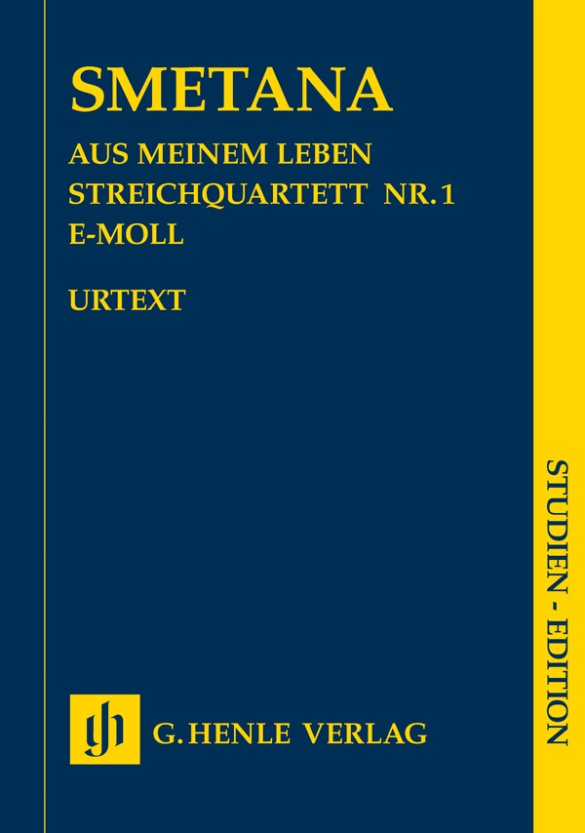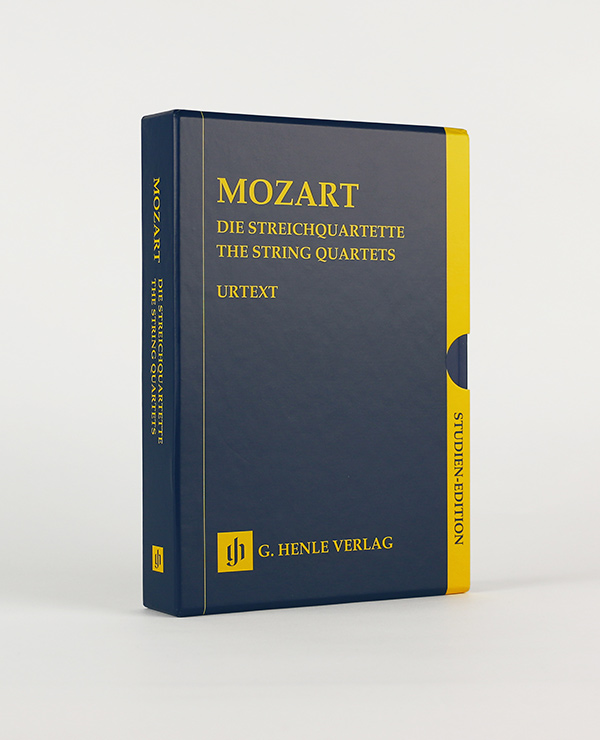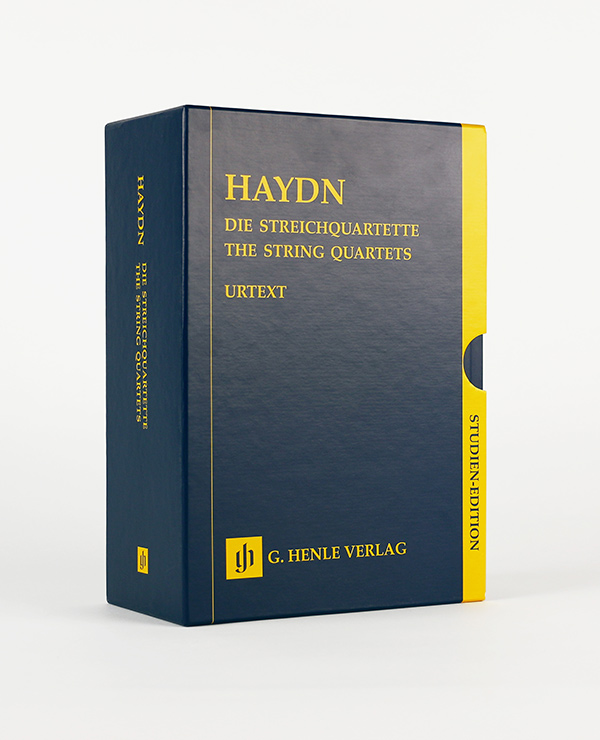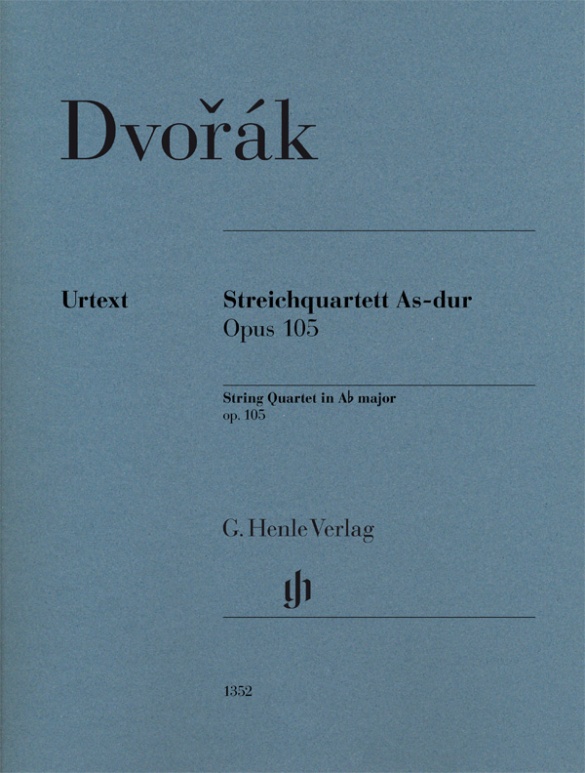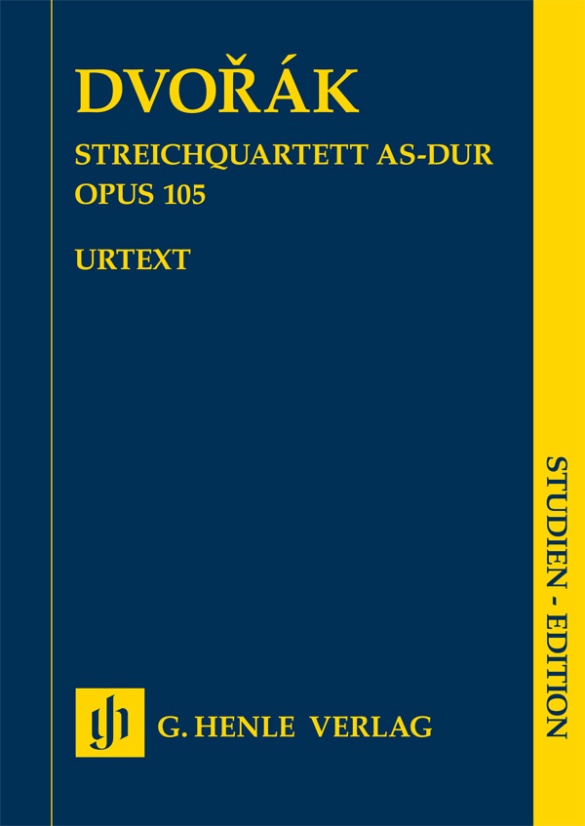Bedrich Smetana
From My Life - String Quartet no. 1 e minor
When Smetana completed his Quartet in e minor in dark and dismal colours in 1876, he had already been completely deaf for two years. Which musician is not familiar with the fateful passage in the fourth movement, in which Smetana symbolizes the beginning of his illness with a violin note in an extremely high position? The previous movements tell of happier times in his life; an extensive extract from a letter about this is cited in the preface to our edition. Smetana, who at the time received a ridiculously small fee from his publisher, could not foresee that this work would later be considered one of the most famous string quartets of all time.
内容/詳細
作曲家について
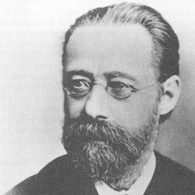
Bedrich Smetana
His work is regarded as a realization of a Czech nationalist musical style. His oeuvre comprises eight operas, symphonic poems, a little chamber music, numerous piano compositions, several vocal works, and songs.
| 1824 | Born in Litomyšl on March 2, the son of a beer brewer. Already successful as a pianist during his high school years. |
| 1844 | Composition pupil of Josef Proksch in Prague. Music teacher to aristocratic families. |
| 1848 | Music school of his own. |
| 1854 | Completion of his only symphony, “Triumphal Symphony” in E major, Op. 6. |
| 1856–61 | Director of the Philharmonic Society in Gothenburg. |
| 1858 | Symphonic poem “Richard III” and “Wallenstein’s Camp” after Liszt’s example. |
| 1861 | Return to Prague, involvement in the emergent Czech culture, also as a critic. |
| 1866 | Music director at the Czech Interim Theater in Prague. Premiere of the operas “The Brandenburgers in Bohemia” and “The Bartered Bride,” the latter to great acclaim; it is his best-known work and regarded as a nationalist opera. |
| 1868 | Premiere of “Dalibor” as a serious nationalist opera. |
| 1869–72 | Composition of the opera “Libuše.” |
| 1874 | Successful premiere in Prague of the opera “The Two Widows.” Loss of hearing and thereby of his music director position. He nevertheless continues to compose. |
| 1872–79 | Cycle of six symphonic poems “Má vlast” (“My Homeland”) as his most well-known symphonic works, including “Vltava” (“The Moldau”) with passages of tone painting. |
| 1876 | Premiere in Prague of the popular opera “The Kiss.” String Quartet No. 1 in E minor, “From My Life.” |
| 1878 | Premiere of the comic opera “The Secret” and the festival opera “Libuše” (1881), which harkens back to a Czech saga. |
| 1884 | Death in Prague on May 12. |
校訂者や運指担当者について
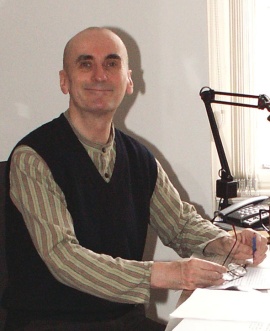
Milan Pospísil (校訂)
Dr. Milan Pospíšil, born in 1945, studied music theory and music history at the Charles University in Prague as well as at the Ruhr-Universität in Bochum (1963–1969); in 1971 he did his doctorate there with a thesis on “Giacomo Meyerbeer: Les Huguenots. Příspěvek k analýze stylu”, and at the Czechoslovak Academy of Sciences in 1988 on “Antonín Dvořák: Dimitrij, op. 64. Kritická edice”.
He worked as a specialist and scholar at the Czechoslovak Academy of Sciences (now Academy of Science of the Czech Republic) in Prague for almost 30 years. In 1981 he co-founded the Smetana Festival and the interdisciplinary symposium on the issues of the 19th century in Pilsen, which still takes place today. Since 2000 he has been the curator and a research associate at the National Museum in Prague.
製品安全に関する情報

G. Henle Verlag
製品の製造元に関する情報はこちらでご覧いただけます。G. Henle Verlag
Forstenrieder Allee 122
81476 München
info@henle.de
www.henle.com
おすすめ
autogenerated_cross_selling
このタイトルを含む他の版
このタイトルを含む他の版


